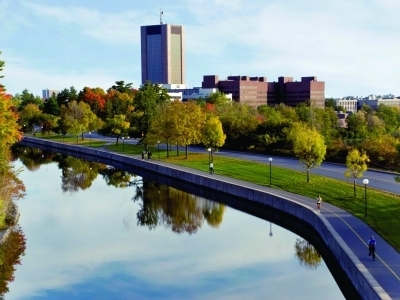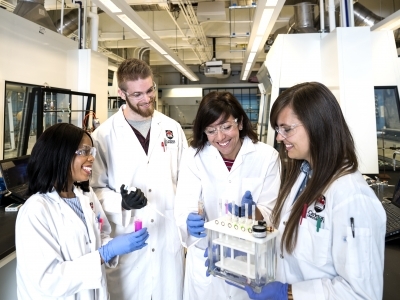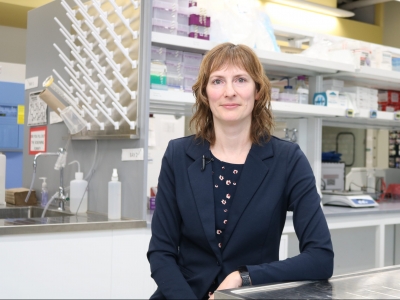Kyle Biggar, a PhD student in Biology, received the GG Medal at Carleton’s Fall Convocation ceremony on Sat. Nov. 9. The following story, written by Susan Hickman, was originally published in Carleton Now.
 Governor-General’s Medal recipient Kyle Kevin Biggar, a 26-year-old native of Summerside, P.E.I., is fascinated by the ability of some animals to survive extreme environmental conditions. He was introduced to research in this field during his undergraduate studies in biology and soon discovered Kenneth Storey’s laboratory at Carleton University.
Governor-General’s Medal recipient Kyle Kevin Biggar, a 26-year-old native of Summerside, P.E.I., is fascinated by the ability of some animals to survive extreme environmental conditions. He was introduced to research in this field during his undergraduate studies in biology and soon discovered Kenneth Storey’s laboratory at Carleton University.
Storey would become Biggar’s most influential and inspiring professor as Biggar completed his doctorate in the study of the molecular basis of animals who survive such environmental stresses as freezing, low oxygen and hibernation.
“(Storey) has an infectious curiosity about science,” says Biggar, “something I hope to one day replicate for my own future students.”
Biggar’s own curiosity about science began as he listened to his father’s stories of pet hatchling turtles that would freeze in their bowls overnight during the cold winter months only to thaw out and be fine the next morning.
A notable project for Biggar during his years at Carleton was a collaboration with researchers from all over the world, including the United States, the United Kingdom, Slovakia and India, who sequenced the first turtle genome. The project searched DNA sequences for clues to how the turtle survives freezing of extracellular body fluids and several months of complete oxygen deprivation.
Biggar, who hopes to become a professor at a Canadian university one day, explains he was fascinated with his doctoral studies and believes this kind of research could provide insight into the discovery of new biochemical applications and interventions to improve the stress tolerance of human cells and organs.
Now, as he studies with Shawn Li at the University of Western Ontario as an NSERC post-doctoral fellow, he hopes to discover and test new peptide-based drugs for the treatment of breast cancer.
Regarding the Governor-General’s Medal, Biggar says: “It is an amazing feeling to have won this award. I was honoured just to be nominated.”
Nevertheless, Biggar admits he wouldn’t have accomplished half as much “without the in-depth scientific discussions and collaborations I had with my fellow lab members. They really helped to expand my scientific knowledge and abilities during the course of my graduate studies.”
Biggar also credits Carleton University with the ample opportunity it offered him to explore his research ideas, to develop collaborations with other departments and to hone his academic teaching skills.



